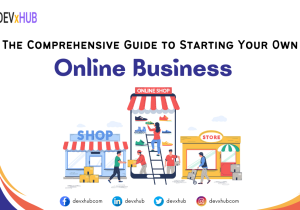Blog - Navigating Your Tech Career: A Comprehensive Guide
A career in technology can present enormous prospects for growth, innovation, and impact in today’s fast-paced and constantly changing technological scene. Whether you’re a recent grad, a mid-career professional thinking about a change, or a seasoned veteran in the tech sector, this comprehensive guide will arm you with the information and techniques you need to effectively navigate your tech career.
1. Self-Assessment and Goal Setting
Self-evaluation is the first step in developing a successful IT profession. Take the time to assess your strengths, limitations, hobbies, and long-term goals before starting this trip. Think about it:
- What are my core strengths and weaknesses?
- What aspects of technology and the tech industry am I most passionate about?
- What specific role or domain within tech appeals to me the most?
- What are my long-term career objectives in the tech world?
These introspective questions will serve as a foundation for charting your career path and help you make informed decisions about your tech career trajectory.
2. Education and Skill Development
In the tech industry, learning is an ongoing process. Here’s how to keep your skills sharp and stay ahead of the curve:
- Formal Education: Consider pursuing a degree in computer science, information technology, or a related field if you haven’t already. A solid educational foundation can open doors and provide you with fundamental knowledge.
- Online Courses and Certifications: The internet is teeming with valuable resources. Platforms like Coursera, edX, Udemy, and Khan Academy offer a wide range of courses and certifications that allow you to acquire specific skills and stay updated on the latest industry trends.
- Self-Study: Don’t underestimate the power of self-study. Books, online tutorials, YouTube channels, and blogs can be excellent sources for self-guided learning.
3. Building a Strong Portfolio
In the tech world, actions speak louder than words. A robust portfolio is your calling card to potential employers and collaborators. Here’s how to create a portfolio that stands out:
- Personal Projects: Undertake personal tech projects that showcase your abilities and enthusiasm. These can range from creating mobile apps to building websites or contributing to open-source initiatives.
- Open Source Contributions: Join open-source projects to collaborate with others, gain real-world experience, and enhance your online visibility.
- Professional Online Presence: Utilize platforms like GitHub, LinkedIn, and personal websites to display your work, connect with industry professionals, and participate in discussions relevant to your field of interest.
4. Networking
Building a strong professional network is indispensable in the tech industry. Consider these strategies:
- Attend Conferences and Meetups: Participate in tech events and conferences to connect with industry leaders, innovators, and peers. These gatherings provide opportunities for learning, sharing insights, and forging valuable connections.
- Online Communities: Engage in online forums, social media groups, and platforms like Stack Overflow or Reddit to ask questions, share knowledge, and network with like-minded individuals.
- Informational Interviews: Reach out to experienced professionals for informational interviews. These conversations can provide valuable insights into various tech career paths and the industry landscape.
5. Job Search and Interviewing
When you’re ready to embark on your job search, these tips can help you secure the right position:
- Tailored Resumes and Cover Letters: Customize your resume and cover letter for each job application, highlighting relevant skills and experiences.
- Technical Interview Preparation: Prepare thoroughly for technical interviews by practicing coding problems, algorithmic challenges, and whiteboard exercises. Platforms like LeetCode, HackerRank, and CodeSignal can be invaluable resources.
- Soft Skills Matter: In addition to technical competence, emphasize your problem-solving abilities, communication skills, and teamwork during interviews. Employers often value these soft skills just as much as technical prowess.
6. Navigating Career Advancement
Once you’ve landed a tech job, your journey is just beginning. To ensure long-term career growth and fulfillment:
- Set and Revise Goals: Continuously set and adjust your career goals as you gain experience and insight. This ensures that you stay motivated and aligned with your evolving aspirations.
- Seek Mentorship: Find a mentor within your organization or industry who can provide guidance, share experiences, and help you navigate challenges. A mentor’s perspective can be invaluable in shaping your tech career.
- Stay Current: The tech industry is in a perpetual state of change. Stay up-to-date with the latest trends, tools, and technologies by investing in ongoing education, attending workshops, and participating in conferences.
7. Work-Life Balance
Maintaining a healthy work-life balance is vital for your overall well-being and career sustainability:
- Prioritize Self-Care: Allocate time for relaxation, exercise, and pursuing hobbies outside of work to prevent burnout and maintain mental and physical health.
- Negotiate for Flexibility: If feasible, negotiate for flexible work arrangements that align with your personal life. A supportive work environment can contribute to a more sustainable and satisfying tech career.
Conclusion
A career in technology is a thrilling and dynamic path full of chances for both professional and personal development. Despite potential difficulties, the tech sector rewards those who are flexible, enthusiastic, and dedicated to lifelong learning. Keep in mind that your career in technology is a marathon, not a sprint. You may successfully navigate the computer business and realize your career goals by continually improving your skills, growing your network, and defining clear goals. Seize the boundless opportunities that the tech sector has to offer as you embark on the adventure that lies ahead. Your career in technology promises to be a transforming experience as well as a career.
Related Posts
Categories
- App Development (2)
- Design (2)
- DEVxHUB (30)
- Digital Marketing (2)
- Guide (24)
- It Bangladesh (1)
- Logo design (1)
- Operating system (1)
- Personal Improvement (14)
- Planning (4)
- Project management (3)
- Social media (2)
- Software Development (5)
- Software Quality Assurance (8)
- Startups (1)
- Team work (1)
- UI UX (1)
- Web Development (6)
Main Tags
- 2024
- Android
- app development
- bangladesh
- content writing
- design
- devxhub
- Digital marketing
- Guide
- IOS
- It
- logo design
- Operating system
- Personal Improvement
- planning
- project management
- social media
- Software Development
- Software Quality Assurance
- software testing
- software testing types
- Startups
- Success
- team
- UI UX
- UI UX design
- VR
- Web Development















